We all agree that Chihuahuas form strong bonds with their owners and are great companions. But that deep bond can sometimes lead to chihuahua separation anxiety. If your chihuahua gets stressed when left alone, you’re not alone. Many chihuahua owners do. This post will cover what Chihuahua separation anxiety is, the symptoms, and how to help your fur baby feel more calm.
What is Chihuahua Separation Anxiety?
Chihuahua separation anxiety is when a dog becomes extremely anxious or distressed when left alone from their owner. This is common in chihuahuas because they are loyal and affectionate. These little dogs can become too dependent on their human companions and separation is a big stress for chihuahuas.
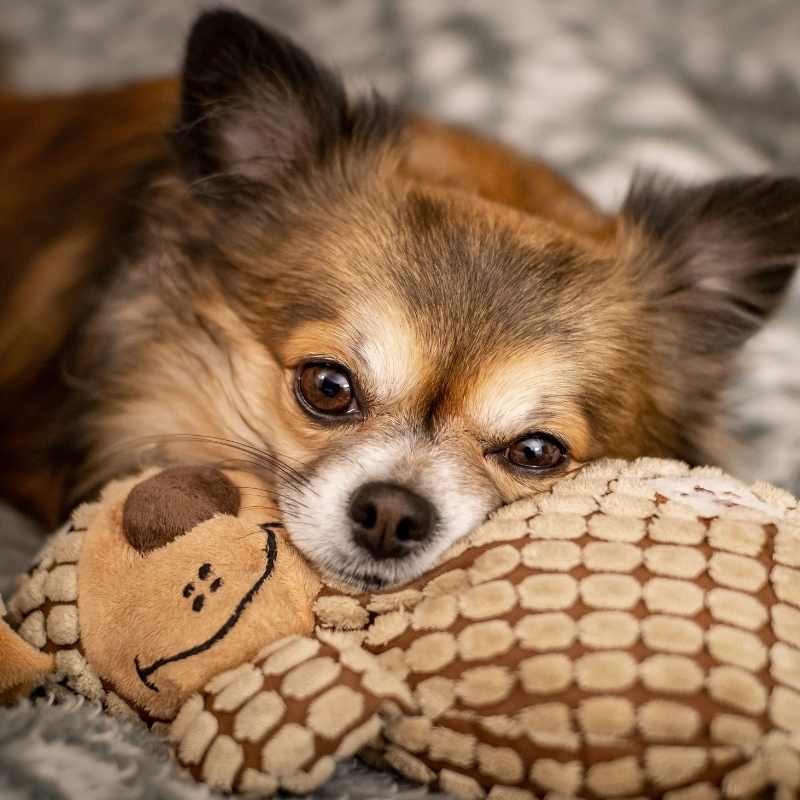
Why Do Chihuahuas Get Separation Anxiety?
Several things can contribute to anxiety in chihuahuas:
- Early Life Experiences: Chihuahuas that were separated from their mothers too early or didn’t get proper socialization may be more prone to anxiety.
- Changes in Routine: Any big change, like a new home, a change in schedule or the loss of a family member can trigger anxiety in chihuahuas.
- Lack of Training: Without training, chihuahuas may not learn how to be alone and will get anxious.
Chihuahua Separation Anxiety Symptoms
Chihuahua Separation Anxiety Signs
Knowing chihuahua separation anxiety symptoms is key to fixing the problem. Chihuahuas like all breeds exhibit many behaviors when they have separation anxiety. Here are the common signs to look for:
Excessive Barking or Whining:
Chihuahuas with separation anxiety bark or whine non stop when left alone. Not just a few barks, it’s a constant and sometimes loud noise that means they’re distressed. The barking or whining starts as soon as you leave and can go on for hours.
Destructive behavior:
An anxious chihuahua will chew on furniture, shoes or other items in the house. This is more than just the normal puppy chewing phase; it’s a desperate attempt to calm themselves. They may chew on objects that have your scent or try to escape from confinement and cause damage.
House Soiling:
Even if your chihuahua is house-trained, anxiety can make them urinate or defecate indoors. This happens when they’re left alone and is a clear sign of distress. Make sure to rule out medical issues so if you notice this behavior consult a vet.
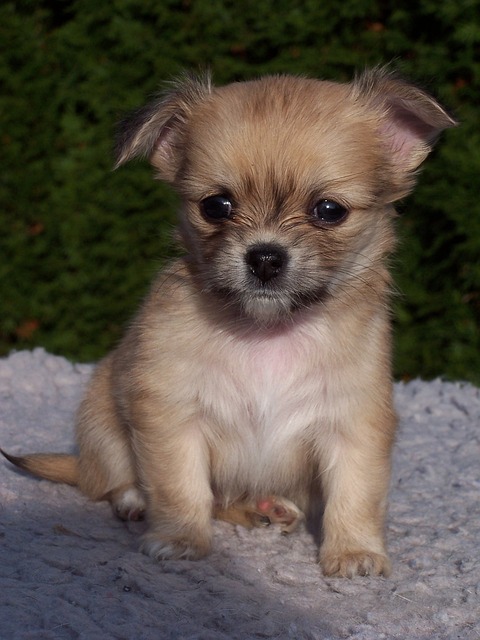
Pacing:
Repetitive pacing or circling is another sign of anxiety. Your chihuahua will walk back and forth along a certain path or circle around the same area over and over. This means they can’t relax and it can be quite persistent.
Escape Attempts:
Chihuahuas with severe anxiety will try to escape from enclosed spaces. This can mean scratching at doors, digging at windows or even chewing through barriers. This can cause injury and is a big sign of distress.
Excessive Salivation or Panting:
Stress signs in chihuahuas often include excessive salivation or panting. If your dog is drooling more than usual or panting heavily without any physical activity, it’s due to anxiety. These physical symptoms are their body’s response to stress.
Depression or Lethargy:
A decrease in activity levels or interest in their surroundings is a sign of depression. An anxious chihuahua will be quieter than usual, withdrawn and not interested in things they used to enjoy like playing or eating.
Boredom vs Anxiety: What’s The Difference?
You need to be able to tell the difference between behaviors caused by boredom and behaviors caused by chihuahua anxiety. This will help you apply the right strategies. Here are some things to consider:
Behavior Patterns:
Boredom behaviors develop over time. Your chihuahua will start to explore and destroy because they have nothing to do. Anxiety symptoms appear suddenly, usually when you leave or are getting ready to leave.
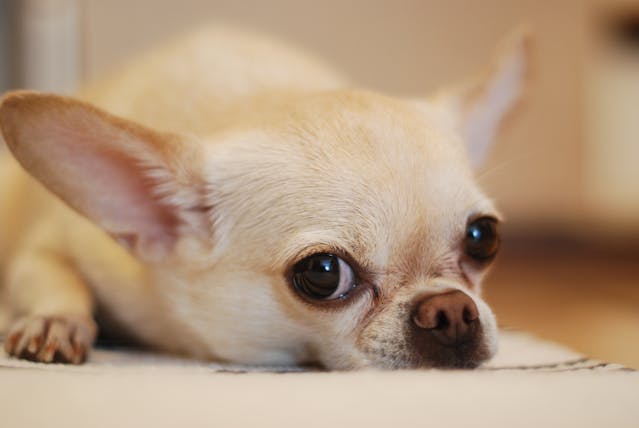
Intensity and Persistence:
Anxiety behaviors are more intense and persistent. An anxious chihuahua will bark or whine non stop and frantically, a bored dog will bark sporadically for attention or out of frustration.
Specific Triggers:
Anxiety behaviors are triggered by specific things, like the owner leaving. You’ll notice your chihuahua starts to get distressed as soon as you pick up your keys or put on your shoes. Boredom has no triggers and is due to lack of stimulation or activity.
Physical Symptoms:
Physical symptoms like salivation, panting and pacing are more common in anxiety than boredom. A bored chihuahua will lie around looking for something to do, an anxious one will show visible signs of stress and discomfort.
Destructive Behavior Focus:
Destructive behavior due to boredom will be more exploratory and varied, your chihuahua will destroy anything they can find to entertain themselves. Anxiety destruction will target items with your scent or escape attempts.
Chihuahua Separation Anxiety Treatment
Treating chihuahua separation anxiety takes time and consistency. Here’s a step by step to help your chihuahua feel more comfortable when you leave:
1. Gradual Desensitization
Gradual desensitization means getting your chihuahua used to being alone. Start with very short times, just a few seconds, and gradually increase the time you’re away. Take your leave and come back with something good, a treat, to associate being alone with something positive.
2. Safe Space
Create a safe, comfortable space for your chihuahua to relax in while you’re away. This should include their bed, favorite toys of your Chihuahua, and maybe an item of your clothing that has your scent. The goal is to make this space a sanctuary for your Chi, so they feel less stressed when you’re not there.
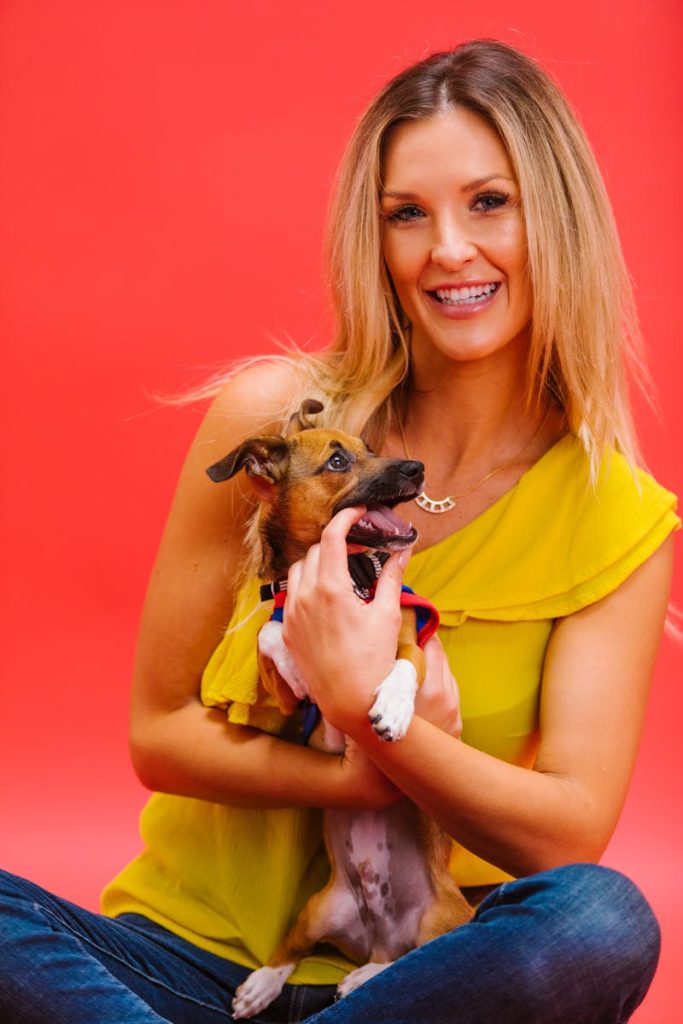
3. Interactive Toys and Puzzles
Interactive toys and puzzles will keep your chihuahua busy and mentally stimulated while you’re away. These distractions will help reduce anxiety by giving them something to do and a sense of purpose.
4. Consistency
Chihuahuas love routine. A consistent daily schedule for feeding, walks, and playtime will help reduce anxiety in chihuahuas. Predictability is security and that reduces stress.
5. No Drama
Keep your departures and arrivals low key to avoid adding to your chihuahua’s anxiety. Try to ignore your dog for a few minutes before you leave and after you get home to make the transitions less stressful.
More Options to treat Chihuahua separation anxiety
If your chihuahua’s anxiety is severe you may need to look into more options:
1. Professional Training and Behavior Modification
A professional dog trainer or behaviorist can give you personalized advice and strategies to manage chihuahua separation anxiety. They can help you identify what triggers your dog and create a plan to address their needs.
2. Medication
In some cases medication from a vet may be needed to help with severe anxiety in chihuahuas. These will help calm your dog while you work on behavior modification techniques.
3. Natural Remedies
Some natural remedies like CBD oil, calming supplements or pheromone diffusers can help reduce stress in chihuahuas. Always check with your vet before trying anything new to make sure it’s safe for your pet.
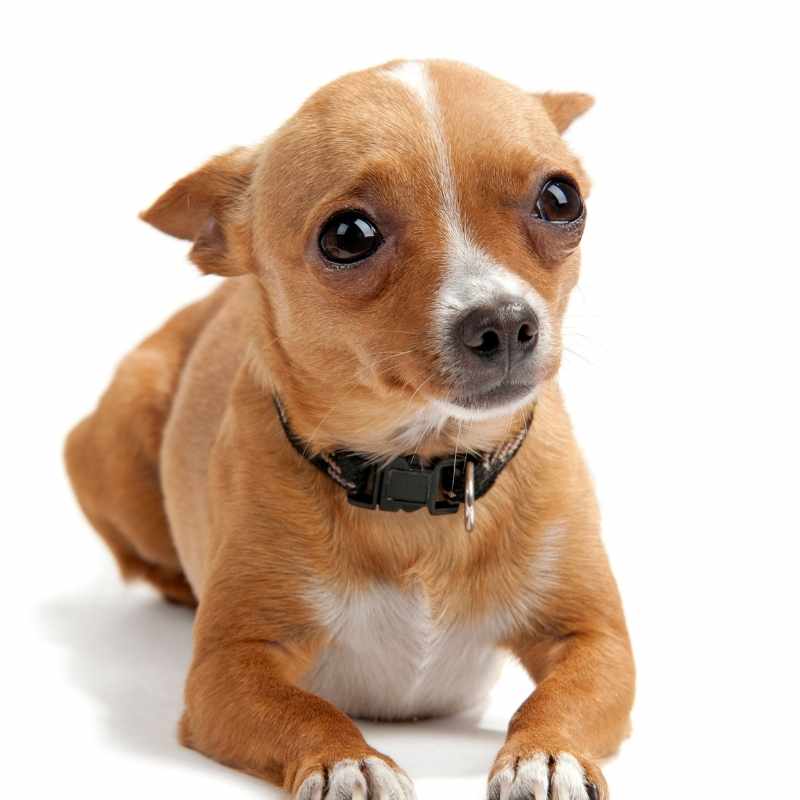
Long-Term Management of Chihuahua Separation Anxiety
Independence
Building independence is key to long term management of separation anxiety. Get your chihuahua to spend time alone, even when you’re home. Gradually increase the time they spend in their safe space and reward them for calm behavior.
Exercise
Exercise is essential to reduce anxiety in chihuahuas. A tired dog is a calmer dog. Make sure your chihuahua gets physical and mental stimulation through walks, playtime, and training sessions.
Reward
Reward calm behavior. Praise and treat your chihuahua when they remain calm during departures and alone time. Consistent rewards can help rewire their response to being left alone.
Dealing With Chihuahua Separation Anxiety: Conclusion
Dealing with chihuahua separation anxiety is hard but with patience, consistency, and the right tools you can help your fur baby feel more comfortable and secure. Every dog is different, so it may take some trial and error to find what works for your chihuahua.
Summary:
- Know the Signs: Recognise the symptoms of separation anxiety in chihuahuas – excessive barking, destructive behavior and house soiling.
- Try the Treatment: Use gradual desensitization, create a safe space and be consistent to help your chihuahua feel more calm.
- Explore More Options: Consider professional training of your Chi, medication, or natural remedies if needed.
- Build Independence: Get your chihuahua to spend time alone and reward calm behaviour to promote independence.
By following these steps and being patient you can improve your chihuahua’s life and reduce the separation anxiety. Your chihuahua will feel more secure and happy and you can have a happier healthier relationship with your fur baby.
It’s not easy, but it’s worth it. A happy chihuahua is a pleasure to have around, and with the right tools, you can have your fur baby thrive when you’re not home.


3 thoughts on “How to Deal with Chihuahua Separation Anxiety?”